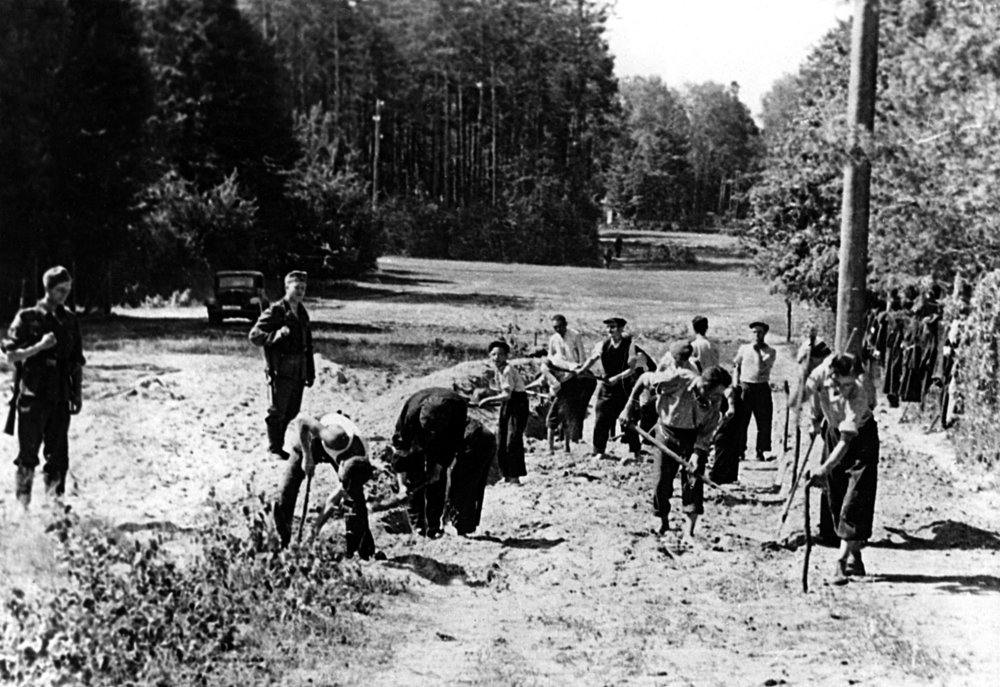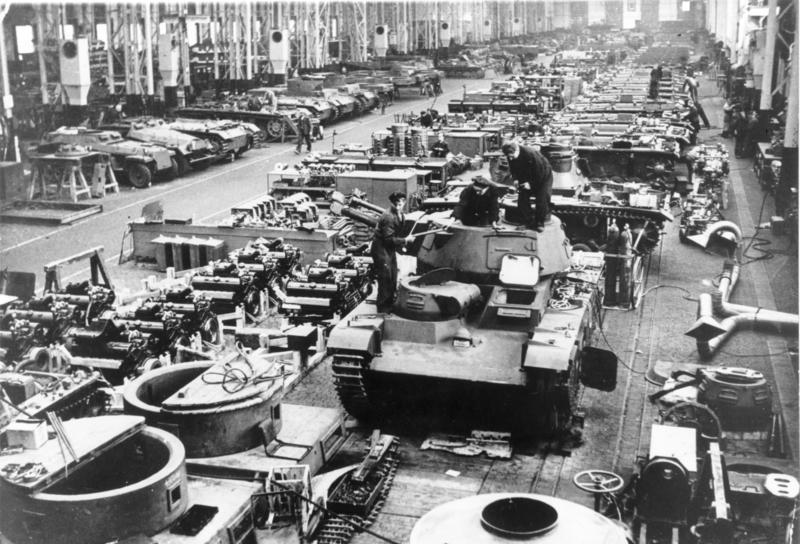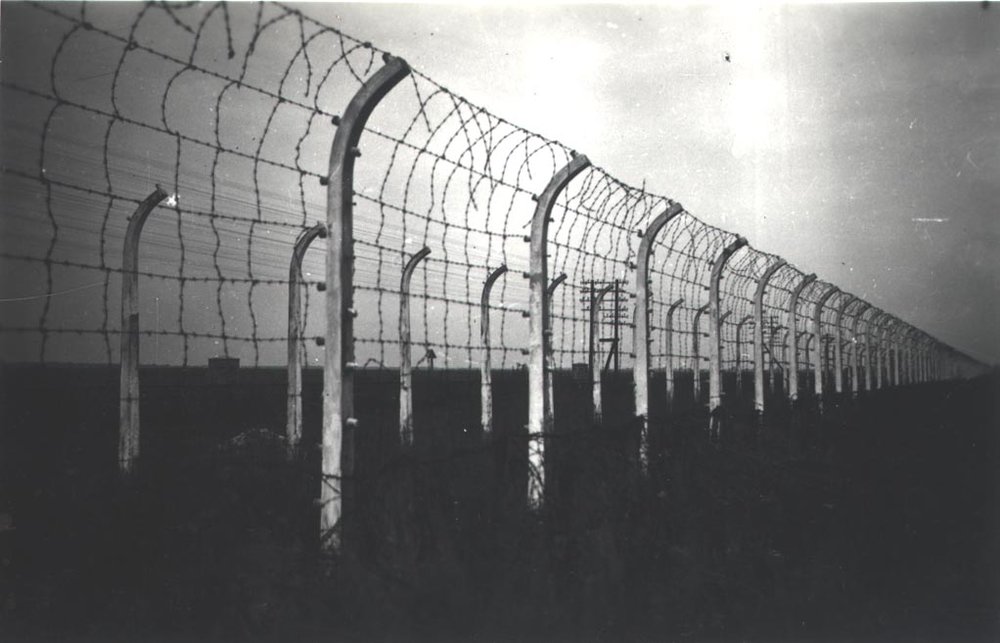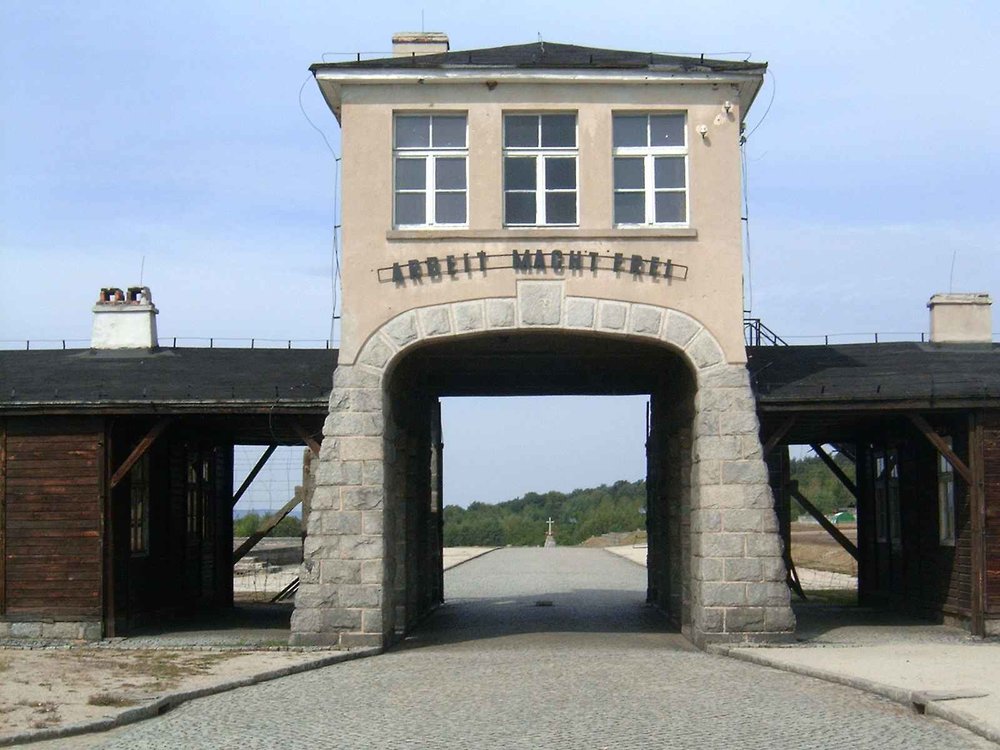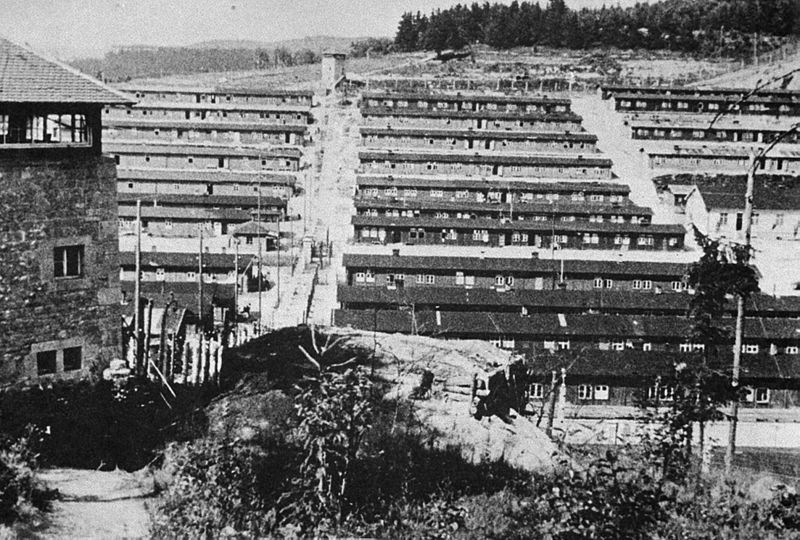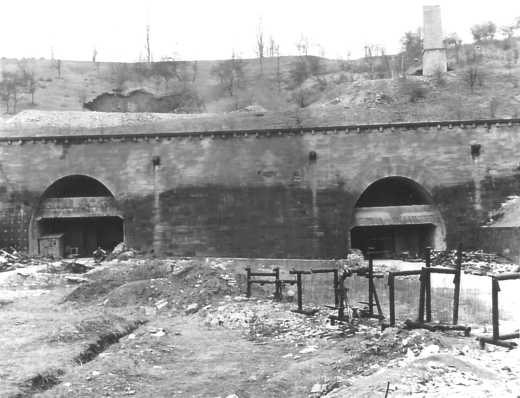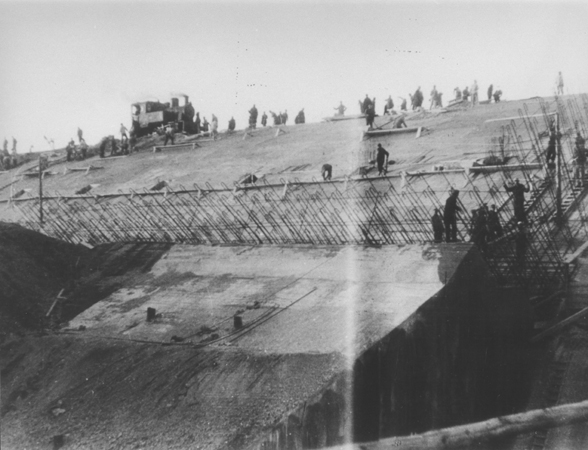EXCERPT FROM THE LONG NIGHT
In Grünheide, 1941
“April brought one of our great festivals, Pesach or Passover, which usually coincides with Easter. During those spring days we remember great biblical events that brought freedom to our people. This is when Jews traditionally celebrate their liberation from slavery in Egypt. It is the custom to organise great family celebrations in the company of guests on the first two evenings of the festival. This patriarchal ritual starts with the head of the family telling the story of how the Jews were enslaved in Egypt and were liberated, and ends with a celebratory meal. Children await this festival with great impatience.
We could mark this Pesach only in our minds. We felt the separation from our families even more deeply. Our hearts were heavy with homesickness and our minds were seared by burning questions about our future. Was our bitter destiny to be torn away from our families and end our lives as deportees behind barbed wire? Would we ever escape our imprisonment? Nobody knew the answer. A few believers decided to observe the ritual even under the present circumstances, resolving not to eat leavened bread. My father was a member of this group. In secret they managed to obtain flour and to bake the matzah, which only consisted of flour and water, in the oven at night. In the evening when the festival began, the religious sat huddled together, recited the prayers, ate the matzahs and recounted from the holy books the story of the Exodus from Egypt.”
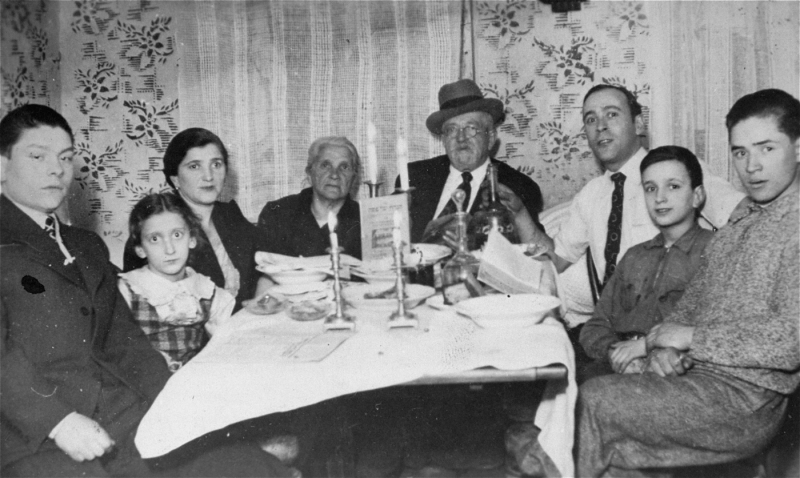
The last supper: A Jewish family is gathered around the table during a Passover seder in their home in Vilna. This was the family’s last seder together before WWII. Pictured from left to right are: unknown; Fruma Katz; Basia (Friedman) Katz; Chana Mina and Feivel Friedman; Mayer Katz; Chaskiel Katz and Theodore Friedman. Basia, Mayer and Fruma survived the war in Theresienstadt. Chava Mina and Feivel Friedman hid behind the false wall of a fireplace, prepared by their son-in-law, Meyer Katz, but were discovered during the liquidation of the small ghetto. Theodore Friedman’s mother, Chana Szapiro, and her two children were shot in Ponary. Friedman himself was deported by the Soviets in 1940 to a labor camp in Archangelsk. April 1939 [United States Holocaust Memorial Museum]

